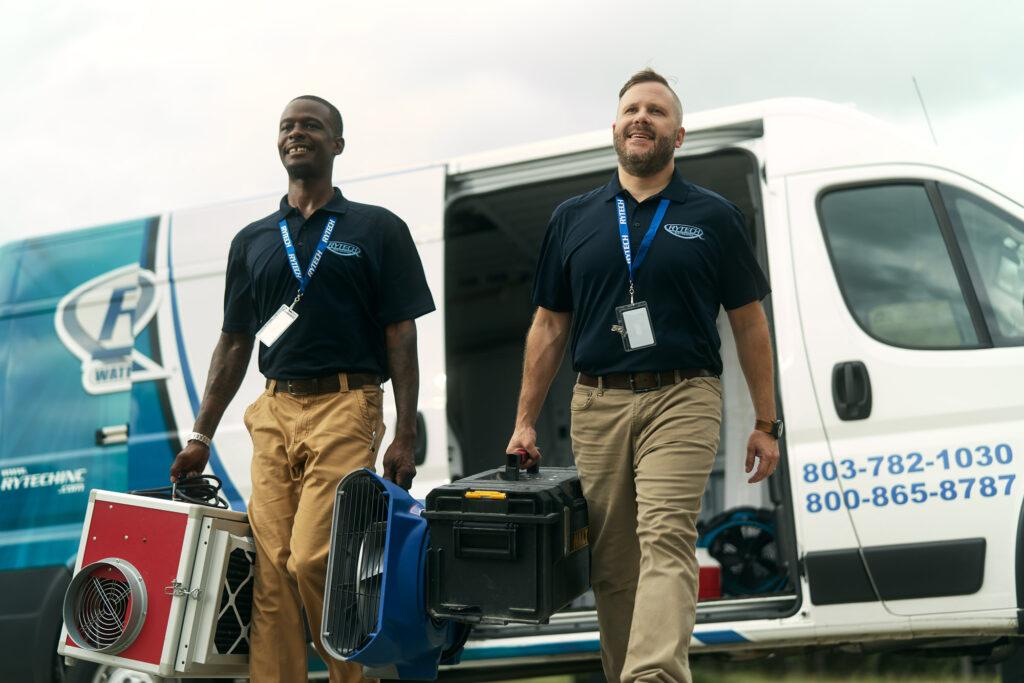Water damage in your home can strike unexpectedly and cause extensive destruction if left unchecked. From leaky roofs to faulty plumbing, the risks are everywhere. Taking proactive measures not only protects your property but also saves you from costly repairs in the long run. At Ideal Response, we understand how stressful home water damage Niagara Falls can be, and we want to help you safeguard your home effectively.
1. Inspect Your Roof Regularly
Your roof is the first line of defense against water intrusion. Damaged or missing shingles can allow rainwater to seep into your home, causing mold, rot, and structural issues. Inspect your roof at least twice a year, preferably in the spring and fall. Look for cracked shingles, rusted flashing, and signs of water pooling. By addressing minor issues promptly, you can prevent serious home water damage before it occurs.
2. Clean and Maintain Gutters
Clogged gutters force water to overflow and seep into your foundation or walls. Regularly cleaning your gutters ensures that rainwater flows smoothly away from your home. Additionally, consider installing gutter guards to reduce debris buildup. At Ideal Response, we advise homeowners to check downspouts and ensure they extend at least five feet from the foundation to prevent basement flooding and water accumulation.
3. Inspect Plumbing and Pipes
Leaky pipes and faulty plumbing are leading causes of home water damage. Inspect your plumbing system regularly, paying attention to exposed pipes under sinks, behind appliances, and in basements. Look for signs of corrosion, moisture, or pooling water. Replacing old or damaged pipes and fixing minor leaks immediately can prevent catastrophic water damage. Consider investing in a water leak detection system, which alerts you to leaks before they escalate.
4. Seal Windows and Doors
Windows and doors can allow water to enter your home if seals are compromised. Inspect caulking and weatherstripping around all windows and doors, replacing damaged seals as needed. Properly sealed openings prevent rainwater from infiltrating your home, protecting walls, flooring, and furniture from water damage. At Ideal Response, we often see that even small gaps can lead to significant water-related issues if ignored.
5. Monitor Your Foundation
A compromised foundation is a major source of home water damage. Inspect your foundation for cracks and signs of water seepage. If you notice damp spots in your basement or water pooling near the foundation, address it immediately. Landscaping adjustments, proper grading, and installing French drains are effective ways to divert water away from your foundation. Proactive measures can save you thousands of dollars in repairs.
6. Install a Sump Pump
Basements are particularly vulnerable to water damage, especially in areas prone to heavy rainfall. Installing a sump pump helps keep your basement dry by removing excess water before it can cause damage. Test your sump pump regularly and consider a battery backup system to ensure it works even during power outages. Ideal Response recommends routine maintenance of sump pumps as a vital step in preventing home water damage.
7. Maintain Appliances
Appliances such as washing machines, dishwashers, and water heaters can leak and cause home water damage Oshawa if not maintained properly. Regularly inspect hoses and connections for signs of wear or leaks. Replace old hoses with high-quality, reinforced versions to reduce the risk of bursting. Additionally, ensure that your appliances are installed correctly and level to prevent unnecessary strain on plumbing connections.
8. Control Indoor Humidity
Excessive indoor humidity contributes to water damage over time by promoting mold growth and warping wood surfaces. Use dehumidifiers in basements or other humid areas, and ensure your home has proper ventilation. Bathrooms, kitchens, and laundry rooms should have functional exhaust fans to remove excess moisture. By controlling humidity, you protect both your home and your family’s health.
9. Conduct Regular Water Damage Inspections
Prevention is easier when you know what to look for. Schedule regular inspections with professionals who specialize in detecting early signs of water damage. Ideal Response offers expert evaluations to identify vulnerabilities in your home’s structure, plumbing, and drainage systems. Early detection allows for prompt action, minimizing the impact of water damage on your property.
10. Have an Emergency Plan
Even with preventive measures in place, emergencies can occur. Develop a plan that includes shut-off valves, emergency contacts, and steps to take if a leak or flood happens. Keep essential supplies, such as buckets, towels, and a wet/dry vacuum, readily available. Having a plan reduces panic and ensures that you can respond quickly to prevent further home water damage.
Conclusion
Home water damage is a serious concern, but proactive measures can make a significant difference. From roof inspections and gutter maintenance to plumbing checks and humidity control, every step you take helps safeguard your home. Trust Ideal Response to provide guidance and support in protecting your property from water-related disasters. By staying vigilant and taking action, you can enjoy peace of mind knowing your home is safe, dry, and secure.



